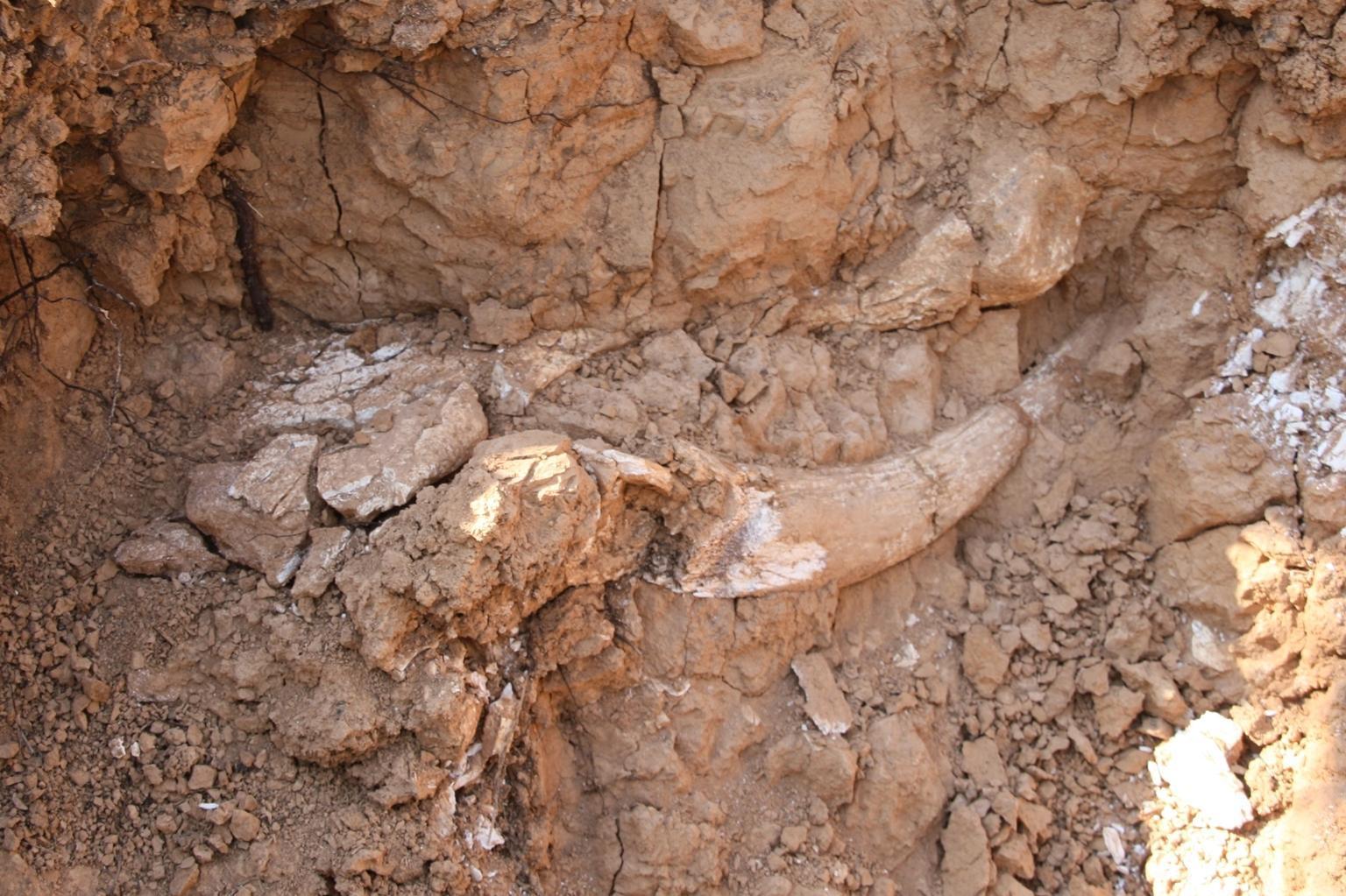9M-year-old fossils revealed in Turkey
DENİZLİ

Survey research in the southwestern province of Denizli has unearthed the fossils of eight animal species including mammoth and rhinoceros that lived 1.2 million to 9 million years ago.
Under the direction of Mehmet Akif Ersoy University (MAKU) Anthropology Department academic Ahmet İhsan Aytek, a team of paleoanthropologists and geologists of Ege and Pamukkale universities and Paris Natural History Museums have continued surface surveys in Denizli.
Ongoing research in different regions identified eight different animal fossils, estimated to have lived between 1.2 million and 9 million years ago. Three different horns and one giraffe fossil dating from 9 million to 7 million years were found in the Miocene period, while the fossils of horse, deer, rhinoceros and mammoth dating back 1.2 million years were found in the Pleistocene period.
Scientists point out that the dating of fossils to the same period as the oldest human being, which was found in Anatolia in 2002, is important in terms of human interaction with animals.
Speaking to the state-run Anadolu Agency, Aytek said that they had found many animal fossils since 2017.
He said that the number of species richened, and they added new species to the fauna during their survey.
“We evaluate these fossils in two different time periods. The first is fossils from what we call the Miocene period dating back 9 to 7 million years. In addition to the many fossils, we found in previous years. This year, we identified four different animals, three of which had horns and one giraffe, in Tavas and Çal districts. The second is the Pleistocene period, also known as the Ice Age. We found four animals here. These are horses, deer, rhino and mammoth. The most important finds for us this year were mammoth and rhinoceros fossils. Especially rhinoceros and mammoth are very important. Because the rhinoceros finds are very little in Anatolia for this period. Therefore, they enrich the fauna of Anatolia. These fossils show that mammoths were also circulating in Denizli during the Pleistocene period, the Ice Age.”
Noting that the mammoth fossil they found consisted of a lower jaw, Aytek said that even in Europe, there is not such a well-preserved lower jaw, and they have reached an important discovery in this respect.

Stating the mammoth fossil dates back 1.2 million years, Aytek said, “Mammoth and deer are important game animals for humans. Again, 1.2 million years of history coincide with the oldest man in Anatolia. He was found in the Honaz district of Denizli in 2002. The history of these fossils is of particular importance since they coincide with the oldest human being in Anatolia. We want to show the human-animal interaction more clearly by increasing the number of these animals and the number of fossils.”
Stating that the number of species increased to 22 with the fossils they found, Aytek said that Denizli has the richest fauna of Anatolia, especially in the Pleistocene period.
The most important discovery this year was the existence of a possible excavation site, Aytek said.
“We had previously found many well-preserved animals in the Tavas district, but these fossils were always carried by the stream, so, we didn’t know the original source of the fossils,” he said. “In this year’s fieldwork, we found the area where fossils stratified, which provides important data for us to excavate. We started to work on this. This work will be a gain for both local people and Denizli tourism. There are many archaeological excavations in Denizli, but the fossil excavation will increase this diversity. There are many fossil excavations in Anatolia, but these are mostly concentrated in Central Anatolia.”
Stressing that the fossils found in Tavas lived in a historical process that ranged from 9 to 7 million years, Aytek said that they focused here for the future studies.
He also added that they have enough fossil materials to open a natural history museum in Denizli.
















